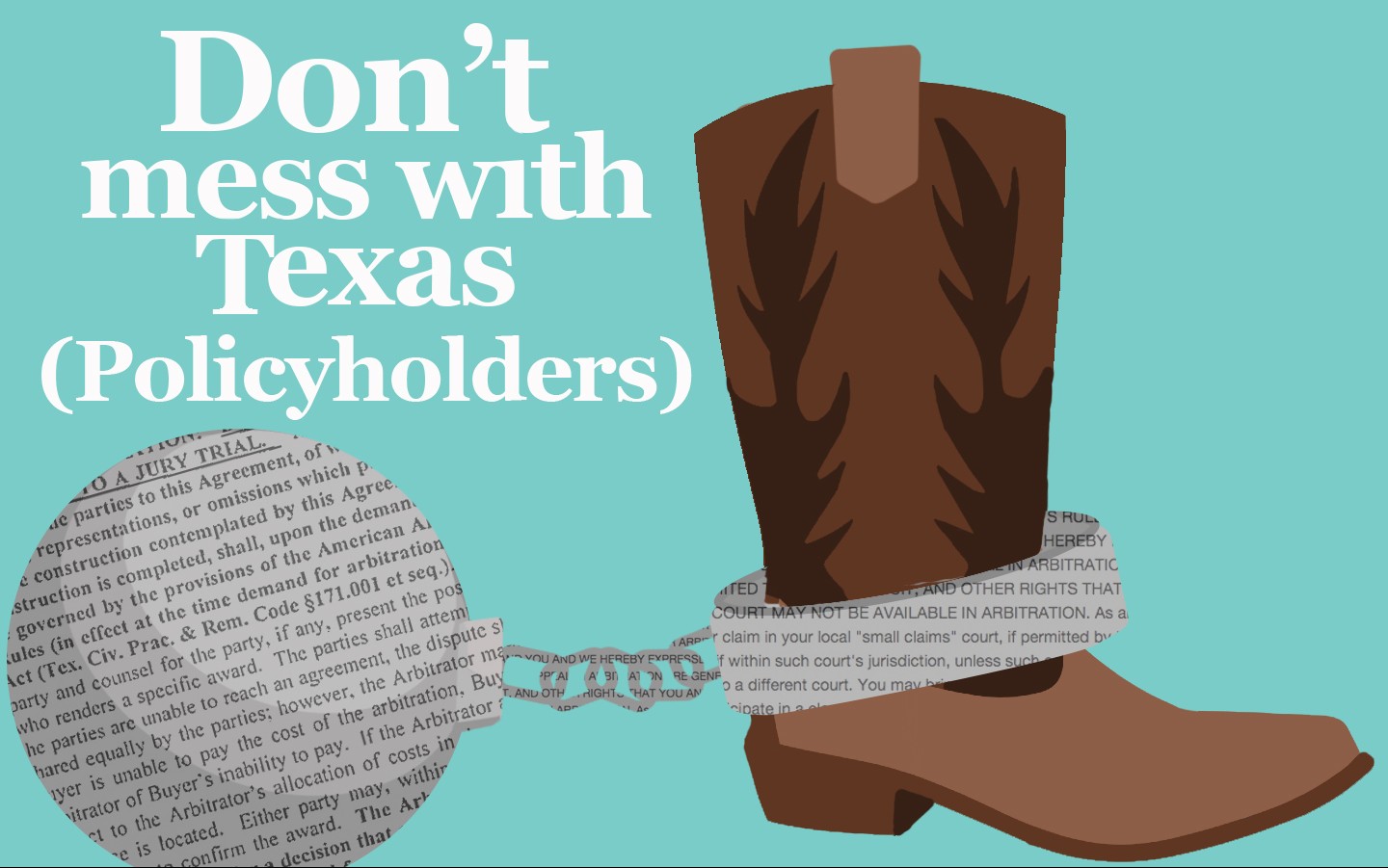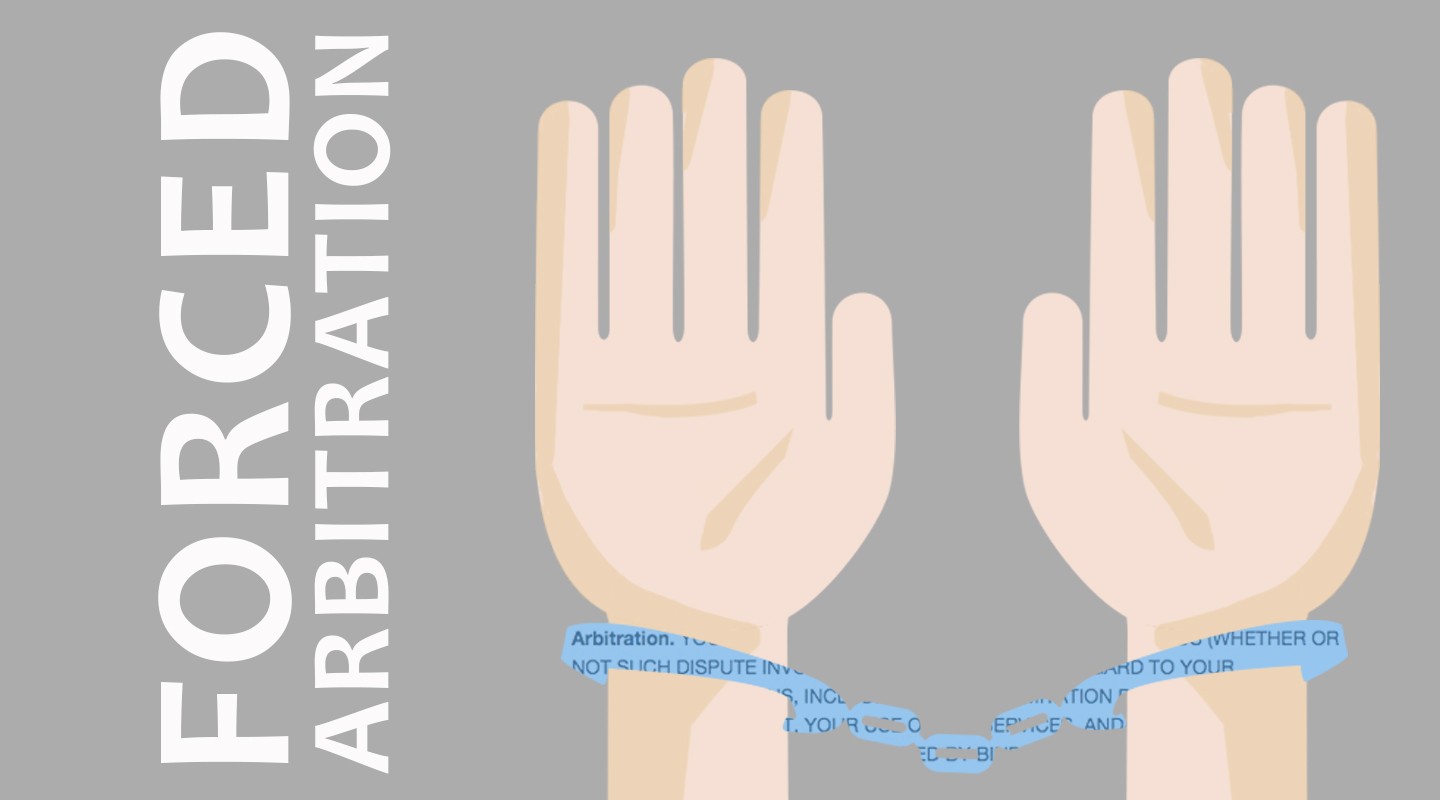Eye on Texas Blog
-
Monday, December 16, 2024
We're Looking for a Great Legislative Intern!
Are you interested in making a real impact while learning how advocacy works at the Texas Capitol?
Are you interested in making a real impact while learning how advocacy works at the Texas Capitol?

After fighting the release of documents related to its request to add pre-dispute arbitration to its home insurance policies, Texas Farm Bureau Insurance relented. So, now the public can see firsthand what the company is up to.
You can see for yourself below, but here are the highlights:
The Office of Public Insurance Counsel has weighed in opposing a proposed pre-dispute binding arbitration provision currently under consideration by the state insurance commissioner. OPIC is the state office tasked with representing policyholders in rate and form filing decisions.
In her letter to Commissioner David Mattax, Public Counsel Deeia Beck writes of arbitration generally:

The Texas insurance commissioner is considering an industry proposal that would allow an insurance company to buy your legal rights for a few dollars a month.
This is unprecedented. Never has the insurance department approved a request to allow an insurance company to include what is called a pre-dispute binding arbitration clause in its policies. In fact, it has been part of the agency's published guidelines to reject any insurance policy that includes such language.

Alex Winslow, executive director of Texas Watch, released the following statement:
The ATF held a press conference today speculating that the fire at the West fertilizer plant was a criminal act. They offered no scientific evidence for their conclusion, only that they claim to have ruled out other possible causes. Today’s media event did little to clear up the confusion about the events leading up to the fire at the West plant three years ago.

90 days. 90 days until consumers might regain vital protections against powerful corporations.
Last Thursday, the Consumer Financial Protection Bureau proposed rules to prohibit dangerous class-action bans buried in credit card, banking, and loan contracts.
Protected by “gotcha” provisions, banks and credit card companies can steal small sums from millions while preventing consumers from holding them accountable in court. This system, called forced arbitration, pits David against Goliath, and with the ban on class actions, plucks the slingshot from David’s hand.

The Texas Department of Insurance is asking questions. But, it's what they aren't asking that's the problem.